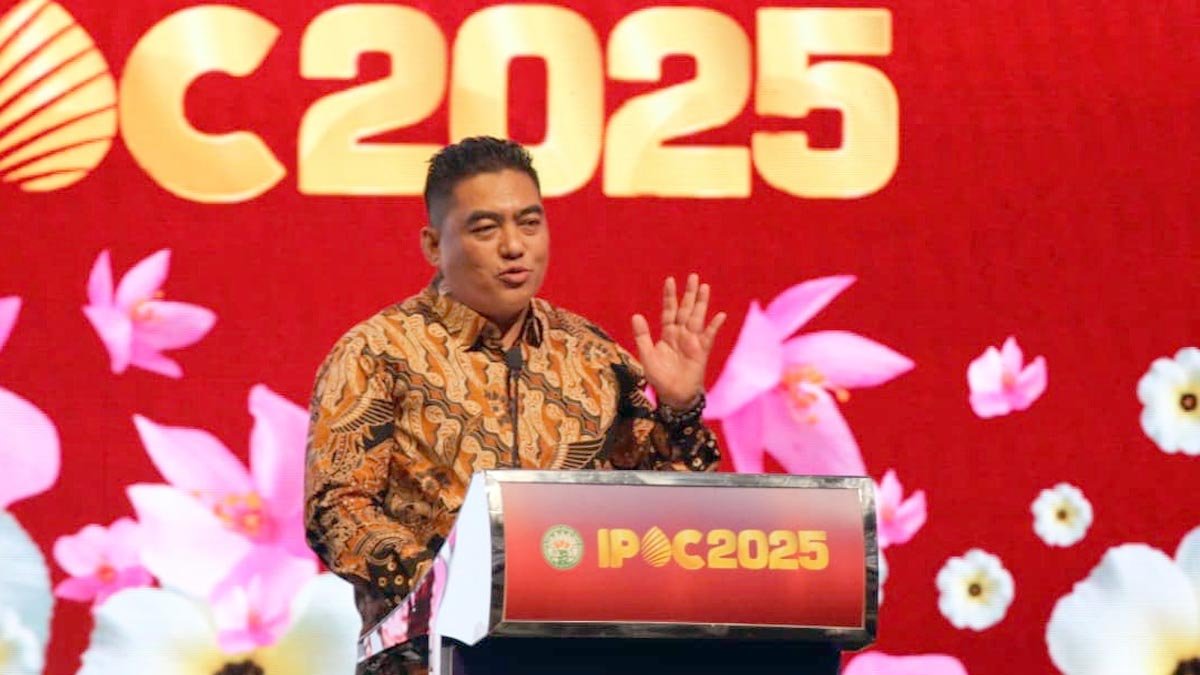PALMOILMAGAZINE, BALI — Director General of Plantation at the Ministry of Agriculture, Abdul Roni Angkat, reaffirmed that Indonesia’s palm oil sector remains the main driver of agricultural exports and a key contributor to improving public welfare. Speaking at the 21st Indonesian Palm Oil Conference (IPOC) and 2026 Price Outlook, held in Nusa Dua, Bali, on Thursday (November 13, 2025), he emphasized the vital role of the palm oil industry in strengthening the national economy.
According to Abdul Roni, more than half of Indonesia’s agricultural export value is still dominated by palm oil. “In 2024, palm oil exports reached USD 19.603 billion, making it the largest contributor to foreign exchange earnings in the agricultural sector,” he said.
Beyond being a major foreign exchange earner, Abdul Roni stressed that the palm oil industry also plays a crucial role in improving livelihoods and reducing poverty. “The sector has created 4.2 million direct jobs and 12 million indirect jobs, significantly improving rural welfare,” he added.
Boosting Productivity and Smallholder Replanting
The Director General noted that improving productivity remains a key focus of government policy. The Smallholder Palm Oil Replanting Program (PSR) continues to be promoted, although its implementation has reached only 19% of the national target as of 2025.
“We acknowledge that the PSR program still faces several challenges — from licensing and auditing issues to farmers’ concerns over program security. Therefore, we are working closely with BPDP, the National Police, and other agencies to ensure the program runs safely and transparently,” he explained.
As a short-term solution, the Ministry of Agriculture is helping farmers access alternative income sources during the replanting period, including the cultivation of upland rice and corn, with output to be absorbed by Bulog.
Strengthening Governance and Downstream Development
In addition to boosting productivity, the government is committed to enhancing palm oil governance and building a stronger downstream industry to increase national foreign exchange. Abdul Roni underlined that developing downstream processing is essential to achieving higher value creation and poverty reduction.
“The President has emphasized that downstreaming is key to increasing value-added and reducing poverty. We target that by 2045, Indonesia will reach 100 million tons of production, supported by an additional three million tons from sustainable plantation expansion,” he explained.
To support this goal, the government has allocated IDR 20 trillion for next year, focusing on infrastructure development, plasma plantation expansion, and downstream projects in biodiesel, bio-polyol, and cooking oil in border regions.
Challenges and Collaboration
Despite these achievements, Abdul Roni acknowledged several persistent challenges, including legal issues, market governance, and institutional coordination. He emphasized that the success of Indonesia’s palm oil development relies on strong collaboration among the government, state-owned enterprises (SOEs), and the private sector.
“We must be winners in our own country. We cannot afford to lose due to fear or unpreparedness in facing regulatory and governance systems. Indonesia’s palm oil industry must remain confident and stand firm in the global market,” he asserted.
Closing his remarks, Abdul Roni expressed optimism about the future of Indonesia’s palm oil industry. “If we remain consistent in strengthening partnerships, productivity, and downstream integration, I am confident that Indonesia will not only stay the world’s largest palm oil producer but also become a global center of innovation and sustainability,” he concluded.
Don’t miss out! Stay up to date with the latest IPOC 2025 news at Palmoilmagazine.com. (P3)
